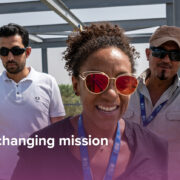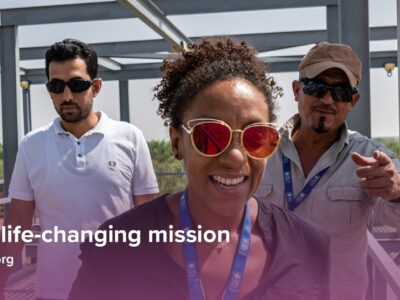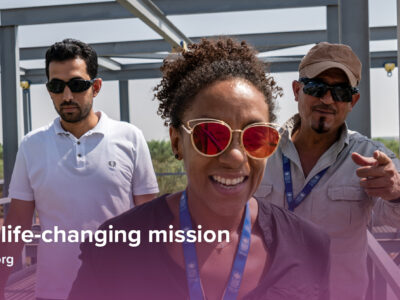UN Women, grounded in the vision of equality enshrined in the Charter of the United Nations, works for the elimination of discrimination against women and girls; the empowerment of women; and the achievement of equality between women and men as partners and beneficiaries of development, human rights, humanitarian action and peace and security. In Nigeria, UN Women works to support the Government’s national development agenda, which prioritizes the empowerment of women and girls and their contribution to all areas of economic, political, and social development.
Women’s leadership and political participation is one of UN Women’s primary areas of work as mandated in its inception, recognizing the integral role of women in strong and stable democratic processes. Through its Leadership and Governance pillar, UN Women’s programmes are guided by a history of international commitments to women’s representation. The Convention on the Elimination of All Forms of Discrimination against Women upholds women’s right to participate in public life, while the Beijing Platform for Action calls for removing barriers to equal participation. The Millennium Development Goals measure progress towards gender equality in part by the proportion of women in parliamentary seats.
In the area of Women’s Political Empowerment, Nigeria has ratified most of the international and regional instruments on women’s rights. However, critical challenges remain in the application and domestication of these frameworks, causing Nigerian women to be underrepresented and marginalised from political decision-making processes. Currently, women’s political representation in Nigeria is abysmally low in the legislative, executive, and judicial powers due to different gendered social norms. Young women in particular experience a double jeopardy as a result of gender and because young people are equally marginalized in politics.
Under the funding of the Government of Canada, UN Women will implement a programme to the women’s political leadership and participation, as well as gender-sensitive reforms to ensure that affected communities, especially marginalized women and persons with disabilities are fully engaged to advocate and participate in the development of policies/legislations, in elections and other political processes affecting them. Priority areas of the programme include:
- Legal Frameworks/Policies and Institutional Reform with a view to influence gender-responsive legislations that will create an enabling environment for women aspiring for political offices.
- Women’s Participation and Leadership through supporting capacity-building trainings for women candidates to boost their campaign strategies, including training and mentoring young women
- Coordination among partners and engagement with key stakeholders by building on the Working Group on Women’s Political Empowerment and engaging communities on advocacy for gender transformation as well as preventing violence among women in politics.
To implement this programme, UN Women seeks a recruit Project Officer to facilitate the field implementation of the project (to serve as a focal point for states in the states in the South of Nigeria). Under the overall supervision of UN Women Deputy Representative, and direct supervision of the Programme Manager, the incumbent exercises responsibility for supporting the planning, implementation, and management of the UN Women’s programme on Women’s Political Participation in Nigeria. She/he works in close collaboration with the WPE team, other programme and operations teams, UN Women staff and substantively and technically support state-level implementation of the programme, including providing guidance to implementing partners in respective states. The Programme Officer will be expected to spend a lot of time in the target states under their respective supervision and provide first-hand information necessary to draw and collate lessons learning and sharing.










Comments